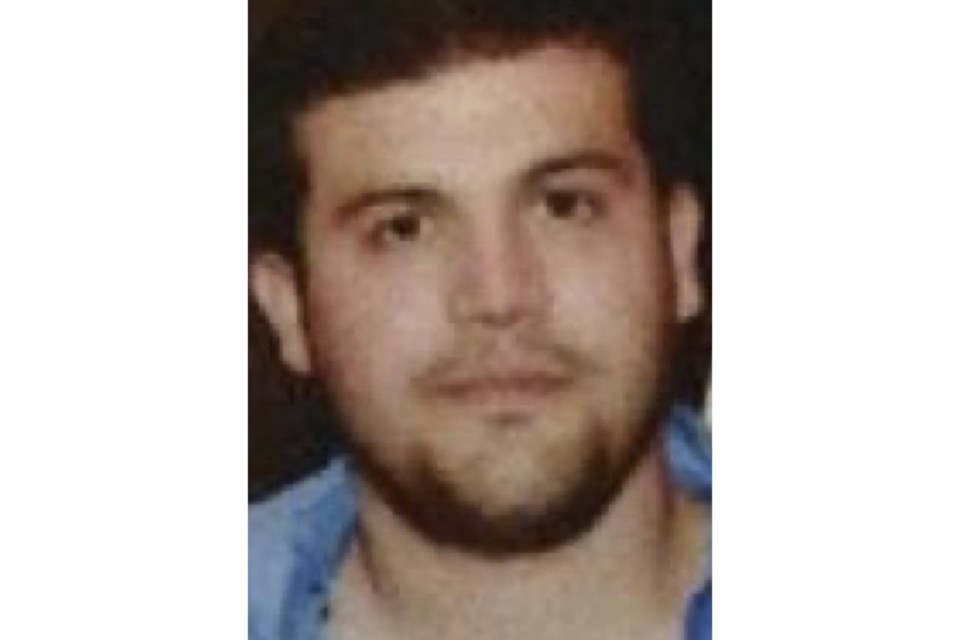WASHINGTON (AP) — Ismael “El Mayo” Zambada, a longtime leader of Mexico’s Sinaloa cartel, and Joaquín Guzmán López, a son of another infamous cartel leader, were arrested by U.S. authorities in Texas on Thursday, the U.S. Justice Department said.
A leader of the powerful Sinaloa cartel for decades alongside Joaquín “El Chapo” Guzmán, Zambada is one of the most powerful drug traffickers in the world and known for running the cartel’s smuggling operations while keeping a lower profile.
The U.S. government had offered a reward of up to $15 million for information leading to Zambada's capture. The Justice Department said the men were arrested in El Paso but didn’t immediately provide details about how they were taken into custody.
With strong ties to Colombian cocaine suppliers and his cells across the United States, Zambada has been among the leaders of the Sinaloa Cartel since the 1970s. The group's principal livelihood has been the sale of narcotics in the United States, authorities said.
Zambada and Guzmán López are facing multiple charges “for leading the cartel’s criminal operations, including its deadly fentanyl manufacturing and trafficking networks,” Attorney General Merrick Garland said.
“Fentanyl is the deadliest drug threat our country has ever faced, and the Justice Department will not rest until every single cartel leader, member, and associate responsible for poisoning our communities is held accountable,” Garland said in a statement.
U.S. authorities have been seeking Zambada's capture for years. He was charged in the Eastern District of New York with conspiring to manufacture and distribute the synthetic opioid. Prosecutors said he was continuing to lead the Sinaloa cartel, “one of the most violent and powerful drug trafficking organizations in the world.”
Zambada, one of the longest-surviving capos in Mexico, was considered the cartel's strategist, more involved in day-to-day operations than his flashier and better-known boss, “El Chapo” Guzmán, who was sentenced to life in prison in the U.S. in 2019 and is the father of Guzmán López.
Zambada is an old-fashioned capo in an era of younger kingpins known for their flamboyant lifestyles of club-hopping and brutal tactics of beheading, dismembering and even skinning their rivals. While Zambada has fought those who challenged him, he is known for concentrating on the business side of trafficking and avoiding gruesome cartel violence that would draw attention.
In an April 2010 interview with the Mexican magazine Proceso, he acknowledged that he lived in constant fear of going to prison and would contemplate suicide rather than be captured.
“I’m terrified of being incarcerated,” Zambada said. “I’d like to think that, yes, I would kill myself.”
The interview was surprising for a kingpin known for keeping his head down, but he gave strict instructions on where and when the encounter would take place, and the article gave no hint of his whereabouts.
Zambada reputedly won the loyalty of locals in his home state of Sinaloa and neighboring Durango through his largess, sponsoring local farmers and distributing money and beer in his birthplace of El Alamo.
Although little is known about Zambada’s early life, he is believed to have gotten his start as an enforcer in the 1970s.
By the early 1990s, he was a major player in the Juarez cartel, transporting tons of cocaine and marijuana.
Zambada started gaining the trust of Colombian traffickers, allegiances that helped him come out on top in the cartel world of ever-shifting alliances. Eventually he became so powerful that he broke off from the Juarez cartel, but still managed to keep strong ties with the gang and avoided a turf war. He also developed a partnership with “El Chapo” Guzman that would take him to the top of the Sinaloa Cartel.
Zambada’s detention follows some important arrests of other Sinaloa cartel figures, including one of his sons and another son of “El Chapo” Guzmán, Ovidio Guzmán López. Zambada's son pleaded guilty in U.S. federal court in San Diego in 2021 to being a leader in the Sinaloa cartel.
In recent years, Guzman’s sons have led a faction of the cartel known as the little Chapos, or “Chapitos” that has been identified as a main exporter of fentanyl to the U.S. market.
They were seen as more violent and flamboyant than Zambada. Their security chief was arrested by Mexican authorities in November.
Ovidio Guzmán López was arrested and extradited to the U.S. last year. He pleaded not guilty to drug trafficking charges in Chicago in September.
Mike Vigil, former head of international operations for the DEA, said Zambada’s arrest is important but unlikely to have much impact on the flow of drugs to the U.S. Joaquín Guzmán López was the least influential of the four sons who made up the Chapitos, Vigil said.
“This is a great blow for the rule of law, but is it going to have an impact on the cartel? I don’t think so,” Vigil said.
“It’s not going to have a dent on the drug trade because somebody from within the cartel is going to replace him,” Vigil said.
___
Verza and Sherman reported from Mexico City.
Alanna Durkin Richer, María Verza And Christopher Sherman, The Associated Press




